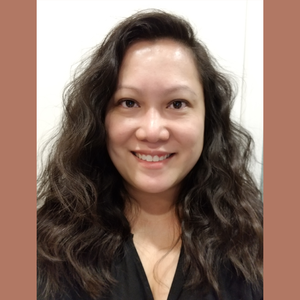Building safety into innovation
This Program is Perfect For
- Aspiring or early-career clinical research professionals
- Mid-level or transitioning professionals in biotech, pharma, or medical device fields
- Professionals seeking continuing education credits and career advancement
Learn the entire clinical trial process
Phase I to III clinical trials
As you study with leaders in the global biopharmaceutical and medical device industries, many of whom are discovering new treatments and health products every day, you’ll gain a practical understanding of the scientific principles, current regulations, and ethical issues underlying clinical research.
You will gain an understanding of how to bring a new drug to market approval—from the discovery of a potential drug molecule and evaluation in the laboratory to clinical trials with human volunteers and FDA oversight processes, including the principles of Good Clinical Practice.
Comprehensive curriculum
- The impact of drug patents on pharmaceutical pricing for new drugs
- The underlying science that drives clinical trial design
- Statistical considerations and the kind of information obtained from trials
- FDA regulations that govern clinical trials
- Bioethics related to the treatment of human subjects participating in clinical trials
- Basic concepts related to drug safety
Certificate learning outcomes
- Demonstrate an understanding of the mechanics and key regulatory requirements of conducting a clinical trial to evaluate the safety and efficacy of an investigational drug in human volunteers.
- Have an awareness and rudimentary understanding of the technologies that biopharmaceutical companies employ to discover and evaluate the pharmacological activities of potential new drug molecules.
- Know the key players involved in drug discovery and development:
- Biopharmaceutical companies;
- Contract research organizations; and
- Clinical sites conducting Phase I through Phase III studies.
- Understand the role of key oversight organizations
- U.S. Food and Drug Administration in the context of Good Clinical Practice;
- Relevant Title 21 Code of Federal Regulations; and
- International Conference of Harmonization Guidelines in the conduct of clinical studies.
- Assess how clinical trials are designed specific to different therapeutic areas.
- Identify the role biostatistics plays in designing the clinical protocol and evaluating the resulting safety and efficacy data.
Courses
Program Requirements
Total: 6–7 courses (16 quarter units minimum)
- 5 courses (11.5 quarter core units)
- 2–4 elective courses (minimum 4.5 quarter units)
- End with certificate of completion review.
| Title | units | Fall | Spring | Summer | Winter |
|---|---|---|---|---|---|
| Drug Discovery, Survey | 1.0 | Flexible | |||
| Clinical Statistics for Non-Statisticians | 2.0 | Flexible | |||
| Good Clinical Practices | 3.0 | Flexible | |||
| Science of Clinical Trials Design | 2.5 | Live-Online | |||
| Drug Development Process | 3.0 | Live-Online |
| Title | units | Fall | Spring | Summer | Winter |
|---|---|---|---|---|---|
| Medical Writing 101 (CSR, Safety Narrative, Protocol, IB) | 2.0 | Online Traditional | |||
| Clinical Document Preparation (Protocol, ICF, IB, IND/NDA) | 2.0 | Live-Online | |||
| Clinical Data Management | 2.0 | Flexible, Final Coursework Due | |||
| Clinical Pharmacovigilance 101: AE, SAE, AESI, SUSAR Reporting | 1.5 | Flexible | |||
| Clinical Project Management | 2.0 | Flexible | |||
| Sponsor and Regulatory Audit Readiness: Regulatory Meetings Preparation | 1.5 | Live-Online |
| Title | units | Fall | Spring | Summer | Winter |
|---|---|---|---|---|---|
| Clinical Trials Design and Management Certificate Completion Fee |
| Title | units | Fall | Spring | Summer | Winter |
|---|---|---|---|---|---|
| Biology of Cancer | 2.0 | ||||
| Viruses, Vaccines and Antiviral Therapy | 2.0 |
1. Required Course(s):
- Flexible Attend in person or via Zoom at scheduled times.
| Date | Start Time | End Time | Meeting Type | Location |
|---|---|---|---|---|
| Sat, 05-02-2026 | 9:00am | 12:00pm | Flexible | SANTA CLARA / REMOTE |
| Sat, 05-09-2026 | 9:00am | 12:00pm | Flexible | SANTA CLARA / REMOTE |
| Sat, 05-16-2026 | 9:00am | 12:00pm | Flexible | SANTA CLARA / REMOTE |
| Sat, 05-30-2026 | 9:00am | 12:00pm | Flexible | SANTA CLARA / REMOTE |
This class meets simultaneously in a classroom and remotely via Zoom. Students are expected to attend and participate in the course, either in-person or remotely, during the days and times that are specified on the course schedule. Students attending remotely are also strongly encouraged to have their cameras on to get the most out of the remote learning experience. Students attending the class in-person are expected to bring a laptop to each class meeting.
No meeting on May 23, 2026. To see all meeting dates, click "Full Schedule" below.
You will be granted access in Canvas to your course site and course materials approximately 24 hours prior to the published start date of the course.
- Flexible Attend in person or via Zoom at scheduled times.
| Date | Start Time | End Time | Meeting Type | Location |
|---|---|---|---|---|
| Thu, 04-09-2026 | 6:30pm | 9:30pm | Flexible | SANTA CLARA / REMOTE |
| Thu, 04-16-2026 | 6:30pm | 9:30pm | Flexible | SANTA CLARA / REMOTE |
| Thu, 04-23-2026 | 6:30pm | 9:30pm | Flexible | SANTA CLARA / REMOTE |
| Thu, 04-30-2026 | 6:30pm | 9:30pm | Flexible | SANTA CLARA / REMOTE |
| Thu, 05-07-2026 | 6:30pm | 9:30pm | Flexible | SANTA CLARA / REMOTE |
| Thu, 05-14-2026 | 6:30pm | 9:30pm | Flexible | SANTA CLARA / REMOTE |
| Thu, 05-21-2026 | 6:30pm | 9:30pm | Flexible | SANTA CLARA / REMOTE |
| Thu, 05-28-2026 | 6:30pm | 9:30pm | Flexible | SANTA CLARA / REMOTE |
This class meets simultaneously in a classroom and remotely via Zoom. Students are expected to attend and participate in the course, either in-person or remotely, during the days and times that are specified on the course schedule. Students attending remotely are also strongly encouraged to have their cameras on to get the most out of the remote learning experience. Students attending the class in-person are expected to bring a laptop to each class meeting.
To see all meeting dates, click "Full Schedule" below.
You will be granted access in Canvas to your course site and course materials approximately 24 hours prior to the published start date of the course.
Required Text:
Primer of Biostatistics, Seventh Edition7th ed., Stanton Glantz, cGraw Hill Professional, 2011. ISBN: 9780071794404
- Flexible Attend in person or via Zoom at scheduled times.
| Date | Start Time | End Time | Meeting Type | Location |
|---|---|---|---|---|
| Mon, 04-06-2026 | 6:00pm | 9:30pm | Flexible | SANTA CLARA / REMOTE |
| Mon, 04-13-2026 | 6:00pm | 9:30pm | Flexible | SANTA CLARA / REMOTE |
| Mon, 04-20-2026 | 6:00pm | 9:30pm | Flexible | SANTA CLARA / REMOTE |
| Mon, 04-27-2026 | 6:00pm | 9:30pm | Flexible | SANTA CLARA / REMOTE |
| Mon, 05-04-2026 | 6:00pm | 9:30pm | Flexible | SANTA CLARA / REMOTE |
| Mon, 05-11-2026 | 6:00pm | 9:30pm | Flexible | SANTA CLARA / REMOTE |
| Mon, 06-01-2026 | 6:00pm | 9:30pm | Flexible | SANTA CLARA / REMOTE |
| Mon, 06-08-2026 | 6:00pm | 9:30pm | Flexible | SANTA CLARA / REMOTE |
| Mon, 06-15-2026 | 6:00pm | 9:30pm | Flexible | SANTA CLARA / REMOTE |
| Mon, 06-22-2026 | 6:00pm | 9:30pm | Flexible | SANTA CLARA / REMOTE |
This class meets simultaneously in a classroom and remotely via Zoom. Students are expected to attend and participate in the course, either in-person or remotely, during the days and times that are specified on the course schedule. Students attending remotely are also strongly encouraged to have their cameras on to get the most out of the remote learning experience. Students attending the class in-person are expected to bring a laptop to each class meeting.
No meetings on 05/18/26, 05/25/26, and one additional "no meeting" TBA. To see all meeting dates, click "Full Schedule" below.
You will be granted access in Canvas to your course site and course materials approximately 24 hours prior to the published start date of the course.
2. Electives:
- Online Traditional Complete online with instructor-set deadlines.
| Date | Start Time | End Time | Meeting Type | Location |
|---|---|---|---|---|
| Tue, 04-21-2026 | 12:01am | 12:02am | Online Traditional | ONLINE |
| Mon, 06-22-2026 | 11:58pm | 11:59pm | Online Traditional | ONLINE |
Online Traditional courses have a structured learning environment and fixed deadlines. This course is largely self-study with instructor guidance and includes online learning modules, assignments, and/or quizzes. All course materials and assignments will be available on Canvas, our learning management system.
For this section, student access begins on April 21, 2026, but you may still enroll until April 28. All course work must be completed by 11:59 pm on June 22, 2026.
You will be granted access in Canvas to your course site and course materials approximately 24 hours prior to the published start date of the course.
Recommended Texts: These books are just recommended, especially if you would like to continue with Medical Writing in your professional development.
Medical Writing, Robert B. Taylor, Springer, 2011-08-18, ISBN: 9781441982339.
Medical Writing, Robert B. Taylor, Springer, 2018-01-09, ISBN: 9783319701257.
- Live-Online Attend via Zoom at scheduled times.
| Date | Start Time | End Time | Meeting Type | Location |
|---|---|---|---|---|
| Sat, 04-18-2026 | 12:00pm | 5:30pm | Live-Online | REMOTE |
| Sat, 04-25-2026 | 12:00pm | 5:30pm | Live-Online | REMOTE |
| Sat, 05-02-2026 | 12:00pm | 5:30pm | Live-Online | REMOTE |
| Sat, 05-09-2026 | 12:00pm | 5:30pm | Live-Online | REMOTE |
| Sat, 05-16-2026 | 12:00pm | 5:30pm | Live-Online | REMOTE |
2/6/26: Course dates change. See full schedule for details.
This class is offered in an online synchronous format. Students are expected to log into this course via Canvas at the start time of scheduled meetings and participate via Zoom, for the duration of each scheduled class meeting.
1 "no meeting" TBA. To see all meeting dates, click "Full Schedule" below.
You will be granted access in Canvas to your course site and course materials approximately 24 hours prior to the published start date of the course.
- Flexible Attend in person or via Zoom at scheduled times.
| Date | Start Time | End Time | Meeting Type | Location |
|---|---|---|---|---|
| Tue, 03-31-2026 | 6:30pm | 9:30pm | Flexible | SANTA CLARA / REMOTE |
| Tue, 04-07-2026 | 6:30pm | 9:30pm | Flexible | SANTA CLARA / REMOTE |
| Tue, 04-14-2026 | 6:30pm | 9:30pm | Flexible | SANTA CLARA / REMOTE |
| Tue, 04-21-2026 | 6:30pm | 9:30pm | Flexible | SANTA CLARA / REMOTE |
| Tue, 04-28-2026 | 6:30pm | 9:30pm | Flexible | SANTA CLARA / REMOTE |
| Tue, 05-05-2026 | 6:30pm | 9:30pm | Flexible | SANTA CLARA / REMOTE |
| Tue, 05-12-2026 | 11:58pm | 11:59pm | Final Coursework Due | ONLINE |
This class meets simultaneously in a classroom and remotely via Zoom. Students are expected to attend and participate in the course, either in-person or remotely, during the days and times that are specified on the course schedule. Students attending remotely are also strongly encouraged to have their cameras on to get the most out of the remote learning experience. Students attending the class in-person are expected to bring a laptop to each class meeting.
To see all meeting dates, click "Full Schedule" below.
You will be granted access in Canvas to your course site and course materials approximately 24 hours prior to the published start date of the course.
- Flexible Attend in person or via Zoom at scheduled times.
| Date | Start Time | End Time | Meeting Type | Location |
|---|---|---|---|---|
| Tue, 03-24-2026 | 5:30pm | 8:30pm | Flexible | SANTA CLARA / REMOTE |
| Tue, 03-31-2026 | 5:30pm | 8:30pm | Flexible | SANTA CLARA / REMOTE |
| Tue, 04-07-2026 | 5:30pm | 8:30pm | Flexible | SANTA CLARA / REMOTE |
| Tue, 04-14-2026 | 5:30pm | 8:30pm | Flexible | SANTA CLARA / REMOTE |
| Tue, 04-21-2026 | 5:30pm | 8:30pm | Flexible | SANTA CLARA / REMOTE |
This class meets simultaneously in a classroom and remotely via Zoom. Students are expected to attend and participate in the course, either in-person or remotely, during the days and times that are specified on the course schedule. Students attending remotely are also strongly encouraged to have their cameras on to get the most out of the remote learning experience. Students attending the class in-person are expected to bring a laptop to each class meeting.
To see all meeting dates, click “Full Schedule” below.
You will be granted access in Canvas to your course site and course materials approximately 24 hours prior to the published start date of the course.
|| Prerequisites: Skills Needed:
Prerequisites / Skills Needed
- Flexible Attend in person or via Zoom at scheduled times.
| Date | Start Time | End Time | Meeting Type | Location |
|---|---|---|---|---|
| Sat, 03-07-2026 | 9:30am | 3:00pm | Flexible | SANTA CLARA / REMOTE |
| Sat, 03-14-2026 | 9:30am | 3:00pm | Flexible | SANTA CLARA / REMOTE |
| Sat, 03-21-2026 | 9:30am | 3:00pm | Flexible | SANTA CLARA / REMOTE |
| Sat, 03-28-2026 | 9:30am | 3:00pm | Flexible | SANTA CLARA / REMOTE |
This class meets simultaneously in a classroom and remotely via Zoom. Students are expected to attend and participate in the course, either in-person or remotely, during the days and times that are specified on the course schedule. Students attending remotely are also strongly encouraged to have their cameras on to get the most out of the remote learning experience. Students attending the class in-person are expected to bring a laptop to each class meeting.
To see all meeting dates, click "Full Schedule" below.
You will be granted access in Canvas to your course site and course materials approximately 24 hours prior to the published start date of the course.
Required Tools & Materials:
The New One Minute Manager, Kenneth H. Blanchard and Spencer Johnson, 2015. ISBN: 9780008128043.
3. Completion Review:
Please enroll in the Clinical Trials Certificate Completion Fee only once all of the certificate requirements have been met and your final grades are posted.
4. Related Course(s): Not part of certificate

You have been a helpful guide throughout this course. I really whole heartedly appreciate the time you invested in helping and guiding me. I hope I have learned well and I will continue to grow.

I just want to thank you for the amazing class on the GCP research process. I enjoyed the many real life examples you provided throughout the course. I found this to be very helpful. Dr. Wallis is an excellent speaker and communicator.
Recommended course sequence
Please begin with Drug Development Process After that, courses may be taken in any order provided the prerequisites for those courses are satisfied. You can learn more about each course in the Syllabus Library.
Substitutions
To receive your certificate
Upon completion of the course sequence you may request your Clinical Trials Design and Management Certificate Completion Review.
Professional development
Licensure and certification
Extension courses also provide credit toward other professional programs.
- California Board of Registered Nursing (BRN)
UCSC Silicon Valley Extension is a California Board of Registered Nursing Continuing Education Provider (License #13114).
Completion of courses in this certificate program often counts toward continuing education units. Registered nurses are required by the California Code of Regulations, Section 1451, Article 5 to complete 30 contact hours of continuing education every two years, in addition to paying the renewal fee, to maintain an active license. - Please see our Licensure and Certification Policy to learn more.

Establish Candidacy
Requisite knowledge
Familiarity with medical terminology is required. We strongly recommend that students without a medical background take Human Physiology in Health and Disease early in their studies.
Grade requirements
Please note that only letter grades of C or higher may be applied to a certificate, and in some programs, students may have more stringent requirements. Students in most employer- and government-sponsored payment programs, such as workforce development, as well as international students on F-1 visas, need to maintain a B average to meet their requirements.
See Grading and Credits Policy for further information.
Instructors
Certificate Program Advisory Committee
KARIM SAJWANI, M.P.H., CCRA
Executive Director / Head of Clinical Operations, Henlius USA, Inc.
Program Chair & Instructor, Clinical Trials Design and Management Certificate Program
Related Programs

























